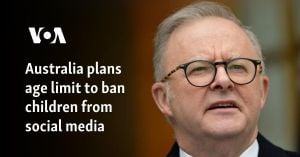Donald Trump has made headlines once again by appointing Massad Boulos as his new senior advisor on Arab and Middle Eastern affairs. This significant appointment, announced by the President-elect, has stirred curiosity and discussion across political circles, primarily due to Boulos's close familial ties to Trump himself. Boulos, the father-in-law of Trump’s youngest daughter Tiffany, is set to play a pivotal role within Trump’s administration, particularly as it navigates complex relations with Arab countries and communities.
Massad Boulos, born in Lebanon and now the CEO of the conglomerate SCOA Nigeria, brings with him both business acumen and considerable wealth, with his net worth reportedly reaching billions of dollars. Beyond his corporate ventures, Boulos has familial connections steeped deep within Lebanese politics, thanks to both his father and grandfather's influential roles.
Trump's selection of Boulos seems part of his broader strategy to cultivate relationships with the Arab American community. Reports reveal his significant involvement during Trump's recent campaign, where he helped rally support from Arab Americans, especially in key swing states like Michigan. Trump emphasized Boulos's commitment to Republican and Conservative values, indicating he believes Boulos’s presence will fortify these connections going forward. "He has been a longtime proponent of Republican and Conservative values, and was instrumental in building tremendous new coalitions with the Arab American community," Trump stated on Truth Social.
The relationship between Trump and Boulos extends beyond politics. Tiffany Trump, who married Michael Boulos – Massad's son – at Mar-a-Lago in November 2022, solidifies this familial bond. The couple's marriage was high profile and closely observed, drawing attention not just to the wedding itself, but to the potential influence of Boulos within Trump’s political pursuits. Now, as Trump prepares for his next term, Massad Boulos is positioned to leverage this familial link to intersect business, diplomacy, and policy-making.
Tiffany Trump, who has largely remained out of the political spotlight compared to her siblings, holds law degrees from Georgetown and the University of Pennsylvania. While she may have avoided public office during her father's first term, her role has become increasingly intertwined with the political apparatus, especially with her husband now stepping to the forefront with such high-level advisory positions. The two are expecting their first child, adding yet another layer to the Boulos-Trump family connection and future aspirations.
Critics, meanwhile, are quick to note the potential implications of nepotism inherent within these appointments. Trump's previous administration featured numerous family members, and selecting Boulos—whose expertise is rooted mainly within business rather than extensive diplomatic experience—raises eyebrows. Nevertheless, Trump's supporters argue this choice reflects the prioritization of personal relationships and trust when dealing with volatile regions like the Middle East.
Historically, Trump has focused on establishing solidified ties with leaders from the Arab world, which complements his administration's prior efforts to tackle issues such as the Israeli-Palestinian conflict. With Boulos as the senior adviser on these matters, Trump aims to sustain and possibly expand upon these initiatives. Boulos might offer insights shaped by his dual exposure to the American and Arab cultures.
The broader community response has been mixed. Arab American groups are watching closely to see how Boulos’s ties might open more doors for dialogue and cooperation, particularly around issues impacting Middle Eastern countries and the diaspora. There’s cautious optimism from community leaders who hope Boulos's influence could lead to improved relations with the Middle Eastern countries.
Going forward, the effectiveness of this appointment remains to be seen. Boulos's clash of his new advisory role against the backdrop of potential internal and external pressures, will be part of the narrative as Trump embarks on this new chapter as President-elect. It’s clear, though, the intertwining of family and politics continues to be a hallmark of Trump’s leadership style.
Much of the focus will hinge on how Boulos can navigate these complex waters. Given the multifaceted conflicts and interests within Arab nations, as well as pressing concerns about the U.S’s standing, the path laid out before him could shape not only the Trump administration’s policies but also redefine how Arab American communities engage with the political system.
Throughout this era of global unpredictability, the stakes for Boulos are high, but at the heart of this appointment remains the promise of new alliances, dialogues, and perhaps, reformations of long-standing policies set to evolve under this renewed leadership.



